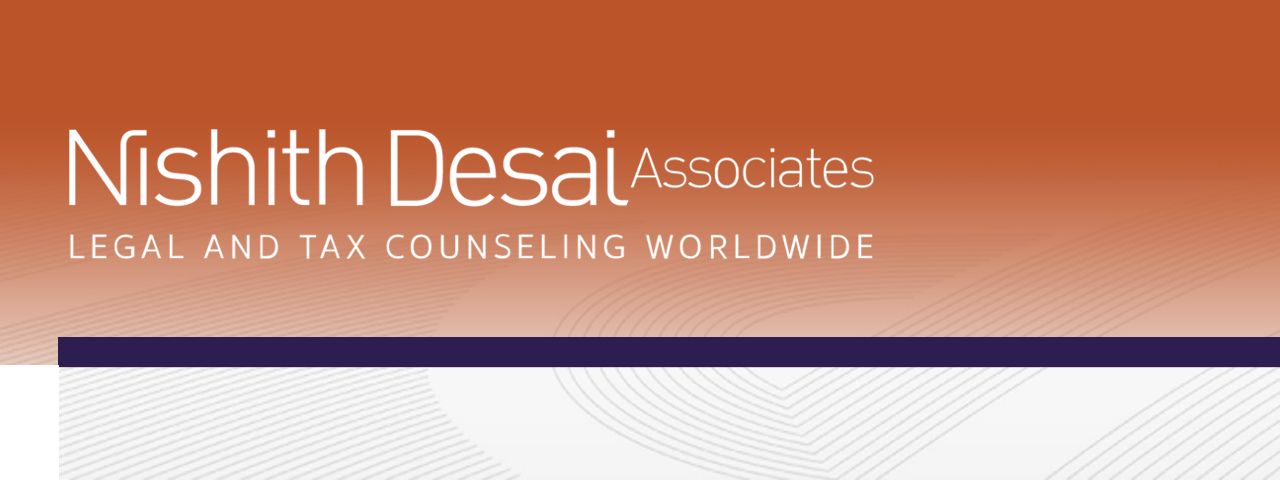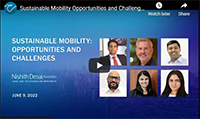|
|
|
Message from Nishith Desai: In recent times, we have seen global powerhouses like EY, Biocon, the House of Tatas and others in the news for the wrong reasons. By evolution and over a period of time, these institutions have set gold standards for businesses but somehow, somewhere, the acts of a few individuals have pulled down the reputation of the organization. How come? Is it the urge to grow too big, too fast, as Brian Armstrong of Coinbase just said? Or is it a case of individuals seeking quicker gratification? Some soul searching is required. There are many growth mentors but instances like this point us to the need for more ‘Culture’ and ‘Ethics’ mentors (irrespective of the size of the organization).
To learn more, please click on ‘About us’. |
ESG: When the governed speak up, who listens?
Good governance is sacrosanct. It is no longer an option. Much like justice, not only must governance be done; it must be seen to be done. Whilst the applicable standards may differ from jurisdiction to jurisdiction and the nature of organisation involved, the fact is that there is always room for improvement and more importantly, there is no room for consistent bad governance. The business world is rife with stories of how promoters have lost their management positions due to one terrible incident, which forms the basis of an internal investigation and uncovers a series of incidents pointing to inappropriate behaviour.
Issues at KPMG Lower Gulf:
On July 09, 2022, the Financial Times ran an article1 about global accounting firm KPMG’s global leadership failing to act on written complaints about the conduct of its U.A.E. Chief Executive, Nadar Haffar (“Haffar”). This included written complaints on email as well as complaints on the whistle-blower hotline by current and former employees over a period of three years. Recipients of such complaints included KPMG’s global chair and Chief Executive, Bill Thomas. The nature of allegations included:
-
Accusations that Haffar had a hot temper;
-
If someone disagreed with Haffar, it was best to stay quiet;
-
Forced exits of senior partners who expressed concerns about governance;
-
Fear of retaliation from the KPMG Lower Gulf practice’s management team;
-
Appointment of one Talal Cheikh Elard (Haffar’s brother-in-law) as Partner and member of the Executive Committee and an attempt to give him a more powerful role;
-
Improper conduct by Haffar and Elard including banging desks and shouting at staff;
KPMG's response:
KPMG International insisted that all reports received by the hotline are taken seriously and responded to along with appropriate action taken. It encouraged colleagues to speak out against anything they consider inappropriate, no matter the topic.
Thoughts for consideration:
Each of the Big Four have invested tremendous time, effort and monies in developing very capable and extensive ESG practices, which advise numerous companies globally. They advise companies on, amongst other things, appropriate and measured responses to the very issues stated above. The Big Four are considered the gold standard for the advice they proffer. To that end, KPMG International’s statement encouraging colleagues to speak out against anything they considered inappropriate and that all reports received on the whistle-blower hotline were taken seriously and responded to, was correct.
However, the abject silence in the face and nature of allegations emanating from KPMG Lower Gulf and the perceived inaction on the part of KPMG international in the face of written complaints and whistle-blower complaints to the international hotline over a three-year period appear incredulous. Even assuming that an internal investigation was conducted in a timely manner (which does not appear to have been done), it appears that the offending behaviour on part of the individual and complaints by third parties against him continued to flow in. In such a scenario, abject failure on the part of the KPMG International leadership team to take considered action against the individual(s) is unbelievable. The reasons for this are unclear.
While KPMG Lower Gulf may be separately owned, it has signed up to uphold certain global standards and utilise the brand. The incident in question demonstrates how the behaviour of one individual in one part of an international organisation has the power to call into question the decision-making process of the global leadership. A reputational fallout and offshoots from such an incident are inescapable. We live in a world where the slightest bit of dirt flung on an organisation is magnified. Global organisations cannot put themselves in this sort of position. They must always, hand on heart, protect all stakeholders, including from parts of their own organisation.
Instances like this do massive harm to global institutions which are created over many decades with contribution from many stakeholders across jurisdictions. It takes one rotten apple to spoil the barrel. While ‘business mentoring’ is now commonplace, it is perhaps time for business to embrace the concept of ‘culture mentoring’.
You can direct your queries or comments to the authors
Disclaimer
The contents of this hotline should not be construed as legal opinion. View detailed disclaimer.
|





